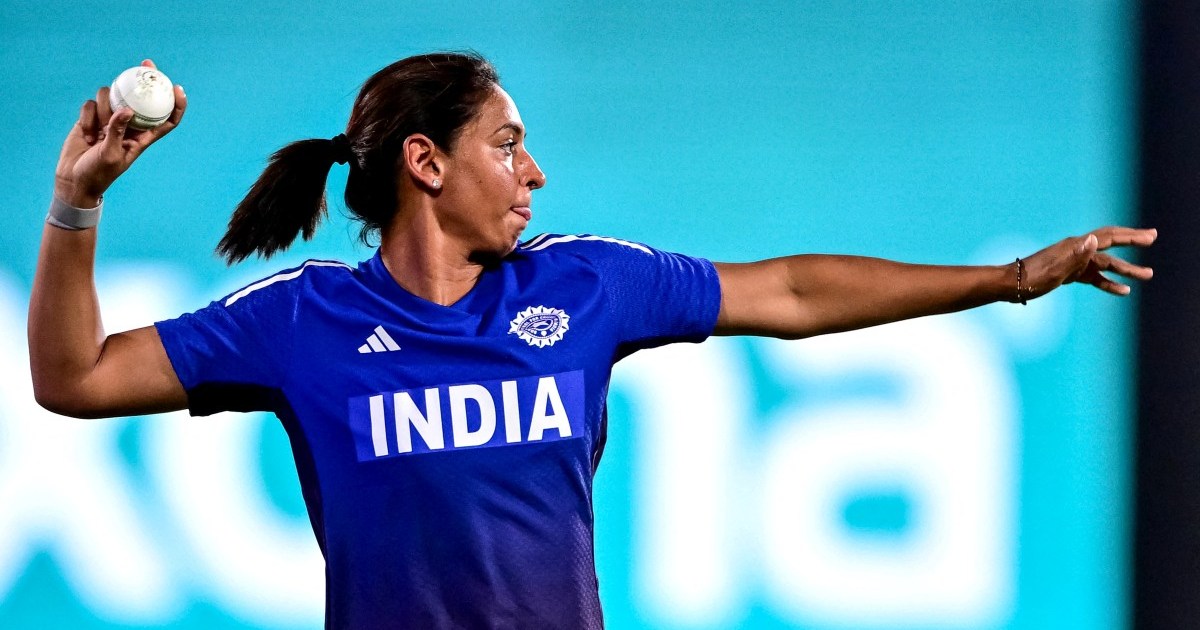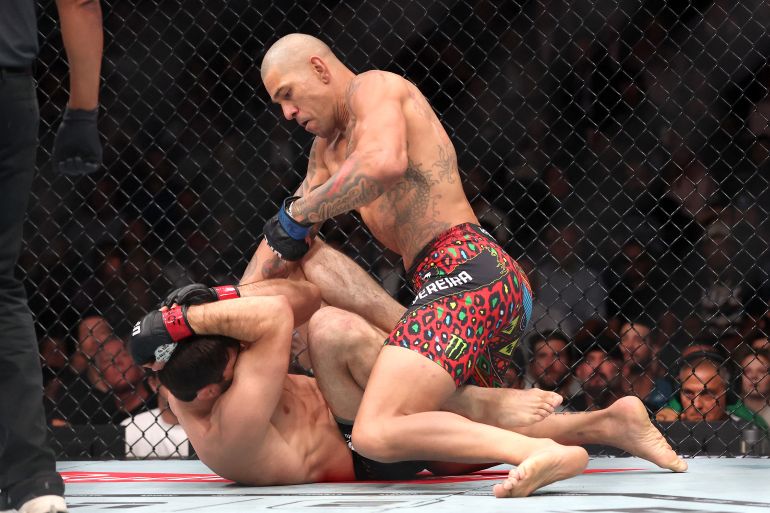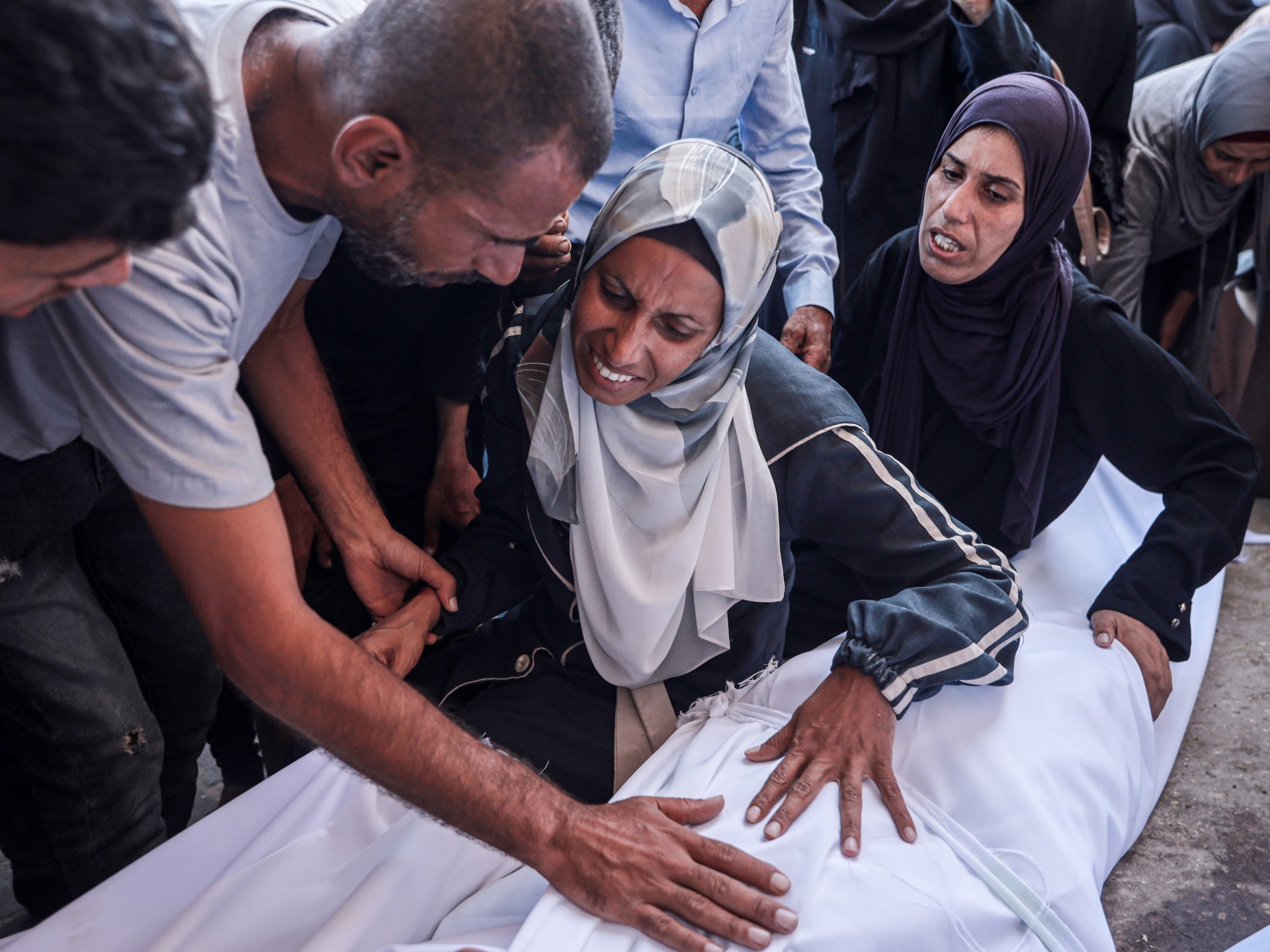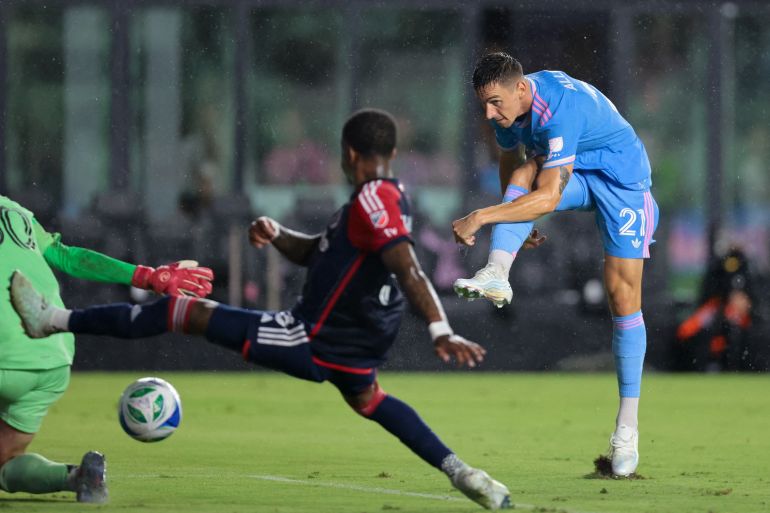Published On 5 Oct 2025
LIVE: India vs Pakistan – ICC Women’s Cricket World Cup 2025


Published On 5 Oct 2025

Published On 5 Oct 2025
Indian authorities have been looking into whether contaminated cough syrup has caused nine children’s deaths in Madhya Pradesh and Rajasthan since late August.
The federal ministry of health and family welfare ordered the investigation on Saturday after it was discovered that a batch of the medication had dangerous levels of a toxic chemical.
list of 4 itemsend of list
State authorities tested samples of Coldrif cough syrup, which was produced by Sresan Pharma in Tamil Nadu’s southern state, and found to contain diethylene glycol (DEG) that was above permissible limits, according to the ministry.
DEG, a toxic compound found in industrial solvents, is fatal if consumed in small amounts.
The Health Ministry stated in a statement that “the samples are discovered to contain DEG beyond the permitted limit.”
The sale of the syrup has been prohibited throughout the state, according to Mohan Yadav, chief minister of Madhya Pradesh, where the majority of the deaths have been reported.
He claimed that the company that makes the syrup’s other products are prohibited as well.
Local media reports claimed that Tamil Nadu’s state authorities also outlawed the product after the drug regulator for Tamil Nadu confirmed DEG contamination in samples taken directly from Sresan Pharma’s manufacturing facility in Kanchipuram.
According to a statement from the Health Ministry, the Madhya Pradesh Food and Drug Administration (MPFDA) stated that three of the 13 samples it examined had been found to be free of contamination.
Authorities have begun inspections of 19 drug manufacturers in six states to look for defects in quality control and suggest fixes to avoid problems from occurring in the future, according to the ministry.
According to the Reuters news agency, Sresan Pharma did not respond to an email request for comment right away.

Published On 5 Oct 2025
With a first-round technical knockout (TKO) of the highly favored Magomed Ankalaev in Las Vegas, Alex Pereira reclaimed his undisputed light heavyweight title and made amends for his Russian defeat seven months prior, making it a boilover at Ultimate Fighting Championship (UFC) 320.
After dropping the 33-year-old champion with a massive right hook less than a minute into the T-Mobile Arena match, Pereira only managed one minute and 20 seconds to defeat Ankalaev.
list of 4 itemsend of list
Before the match referee called off the match, the Brazilian then slammed the opponent with a flurry of punches and elbows.
Ankalaev, who had never lost a UFC match, made his promotional debut at a UFC Fight Night in March 2018 and made his comeback with a 14-match unbeaten streak.
Pereira was the undisputed underdog before the match, with Ankalaev receiving 89 percent of the BetMGM fight bets.
Ankalaev (20-2-1, 12-2-1 UFC) had already beaten Pereira (13-3, 10-2 UFC) in their first bout at UFC 313 on March 8. Pereira claimed that because of injury, he only fought 40 percent of his best combat skills.
With his victory, Pereira has won the UFC light heavyweight title twice.
The 38-year-old’s victory gives the division’s light heavyweight title a second chance, taking the belt from Ankalaev, who had little to offer hope for the division’s future. It opened the door for a third bout against Pereira for the belt with Jiri Prochazka also winning his bout by stunning knockout.
In their five-round fight, Merab Dvalishvili (21-4-0) defeated Cory Sandhagen (18-6-0) to defend his undisputed bantamweight title.
The three judges scored it for Dvalishvili: 49-45, 49-45 and 49-46.
Prochazka (32-5-1) and Khalil Rountree Jr. (135-7-0) fought it out for the most points in the main card’s most anticipated match. With two minutes left, the Czech fighter landed a devastating combination that instantly knocked out Rountree with a loss in the balance late in the third.
In the first round, which saw Prochazka clearly stumbling into the second, Rountree seized control by landing a number of high-calibre combinations in the first. Prochazka had a window with his third-round explosion, but the exchanges also made Rountree tired.


Published On 5 Oct 2025

Published On 5 Oct 2025
As Russia launched new deadly airstrikes against neighboring Ukraine, Polish and allies have been deployed to secure the nation’s airspace, according to its military.
In response to alleged Russian airspace incursions and drone sightings in several member states, NATO’s transatlantic security bloc increased its air patrols across the region on Sunday.
list of 3 itemsend of list
Poland’s operational command stated in a post on X early on Sunday that “polish and allied aircraft are operating in our airspace, while ground-based air defense and radar reconnaissance systems have been brought to the highest level of readiness.”
These actions, according to the statement, are preventive in nature and aim to protect people from harm, particularly in areas close to the threatened region.
The Polish military stated that its forces under its control “remain fully prepared for immediate response” and that it is monitoring the current situation.
Poland and Ukraine are estimated to travel 530 kilometers (329 miles).
Following Ukrainian Air Force warnings of Russian missile and drone attacks, Ukraine was currently on air raid alerts for the entire country as of 02:10 GMT.
Ivan Fedorov, the region’s head of southeast Zapoprizhia, claimed in a statement posted on Telegram that a 16-year-old girl was among the victims of a “combined strike” by Russia that left six people dead and injured.
After Russia launched a significant attack across Ukraine in late September, Poland  was forced to temporarily close some of its airspace southeast of Warsaw.
Russian drones  entered Poland’s airspace earlier that month, marking their first direct military engagement with Moscow since the Kremlin’s full-scale invasion of Ukraine , which started in 2022.
After being closed for hours for a “series of balloons” in its airspace, NATO member Lithuania reopened its main airport on Sunday.
